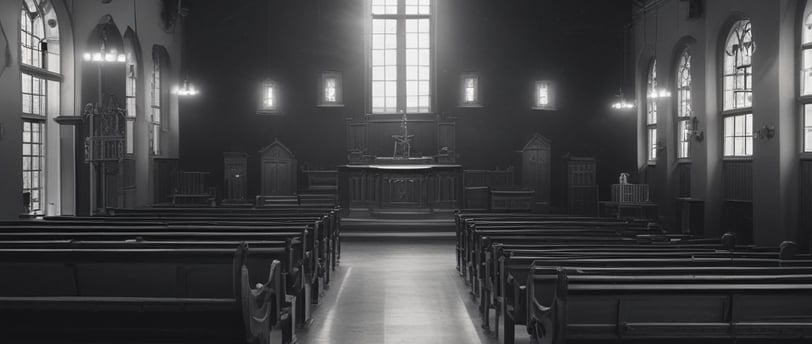I was thinking of the Texas preachers nearest the flood zones with sermons to preach in a few hours; it was the middle of the night for me.
God. Texas. Floods. MAGAts. God. Preachers in Christian congregations. Bad theology. God.
BACH, "SHEEP MAY SAFELY GRAZE"TEXAS FLOODING OVER THE 4TH OF JULY WEEKENDPREACHERS OF CHURCHES NEAR THE TEXAS FLOOD SITES WILL HAVE TO/HAD TO PREACH TO THEIR HURTING CONGREGANTS THIS MORNING.PREACHING AND ETHICSDAVID ALBERT FARMERPREACHINGPASTORAL PREACHINGGOD AS THE LOVE THAT WILT NOT LET US GONATURAL DISASTERS
7/6/20255 min read


I do not have a preaching engagement this morning, and I do not live in Texas. It is nearly 3:00 a.m. Eastern Time, and I have every right, therefore, to sleep directly through the night without fretting over a thing. If I were a preacher in Texas, however, I'd probably be making my second pot of coffee by now; consigned to the fact that I wouldn't be sleeping at all and shouldn't be sleeping at all given the fact that my calling and my job would have me climbing into a pulpit in a few hours—trying to make some theological and pastoral sense of the natural disaster that has claimed lives that we know of and probably others yet to be confirmed.
If I were a fundamentalist theological robot, no offense to all theological robots as some are surely liberals, I wouldn't be worried at all. In fact, my sermon for the morning could easily be a rerun, something that I would have told my congregation already time and time again—namely, that the flooding tragedy like all events including the passage of the Big Bash-you Bill was willed by God. And if we don’t understand why God would cause or allow such carnage that’s understandable as long as we realize it fits into God’s perfect will some kind of way.
I have a few hundred former preaching students who are now pastors or otherwise preaching regularly; I don’t know of any who pissed off bishops or other theological higher ups and got sent to Texas to atone. My students are mostly up north trying to figure out what to do with Fetterman theologically and otherwise; that’s a cinch compared to those who will be preaching in view of the raging waters and in earshot of the screams of mothers and fathers and sisters and brothers of a precious teen or tween or others of all ages who won't ever be returning home.
The trade off in much Christian theology, and it really doesn’t have to be either of these as the dichotomy is false, is a God who is all powerful and in control of everything that happens gloriously and tragically or a God who isn’t in control of all that happens and is thus a weakling. If the God I had to represent in a sermon this morning had to be one of those two I would be despairing myself and adding something stronger than communion wine to my coffee by now.
I share these thoughts for preachers and for spiritual seekers; none of whom are the broken Texas families. What I’d pull together for them would be of a different quality altogether.
In a sermon I would not enumerate, but since this is not a sermon and it is the middle of the night enumeration will help me stay focused and hopefully be of benefit to those of you good enough to read or listen to what I have to say.
As much as I believe in the potential of preaching to accomplish great good, fully aware that it has been probably more often used as a tool of evil and destruction, I would say, nonetheless, that words are rarely as powerful as presence. People in times of crisis and loss are much more inclined to remember those who came to them, those who embraced them, those who shed tears with them because they could not get words to move from their throats to their mouths. I would hope therefore that a major part of the worship services taking place close to the flood sites this morning regardless of what has been planned in terms of a service will allow plenty of time for presence sharing. Not just the quick passing of the peace or a handshake; and for God's sake, no stupid announcements this morning. As far as upcoming events, nothing should remain on the church’s calendar this week except caring actively in all kinds of practical ways for those who have experienced loss.
My sister- and brother-preachers, your primary role this morning is pastoral, not doctrinal; those two dimensions of preaching should complement each others and perhaps be reflected in all good sermons, but one will take the lead. Today you are a pastoral preacher first and foremost.
Your hearers need to be given permission if they don’t already feel it to begin feeling their grief as fully as they are able at this moment. More grief will come, and the preacher and the congregation should be ready to continue appropriate related ministries.
No one is more in pain than God this morning. And the presence of God is pure love that “wilt not let us go” as a poet once said.
God did not will the floods; God did not allow the floods. The natural world has its own system of operating. We can nurture nature or abuse it; and there will be consequences to us either way. But doing all we can do to care for nature will still not prevent periodic destructive episodes.
Free your hearers today if you haven’t already from the crippling notion that in order to be “right with God” they have to believe certain theological constructs. That view is organized religion at its worst; that is MAGAt “Christianity,” which is no Christianity at all. Who knows where any of your hearers or you will end up in terms of trying to make rational sense of this tragedy as the months and years unfold.
None of you will ever get over this. Like the grief itself, it will be part of your life for the rest of the journey so coping with it in whatever ways work for the individuals involved, and there is more than one way to deal healthily with tragedy, are to be respected as long as they are not self-destructive.
Today is not Bible memory verse day; today might be no Bible day at all. I don’t want to hear about any preachers who stood up in the pulpit this morning and read John 11:35, “Jesus wept.” No shit.
Music may make a huge positive difference today. I think, especially instrumental music. Words from you and from a lyricist may not work yet. Or maybe ever on this topic. It’s not the day for Florene the flat also to sing even if she is beloved. It’s not a day for your keyboard person or people to pull out the Rachmaninoff or the glissando gushes. Not funeral home sound tracks in mournful minor keys, but gentle loving melodies; if classical music is embraced by your congregation, yes to Bach’s “Sheep May Safely Graze.”
To the extent that human carelessness contributed to the horrendous effects that have come and perhaps are still coming when proper precautions and warnings are taken/issued saving lives, these must be called out. But at this juncture, that shouldn’t be offered as a diversion from feeling the grief, the pain of loss.
At some point, perhaps, others in the world experiencing horrendous loss might be an appropriate topic for consideration; not today and not any time soon.
How you word your public prayers today will be as important as your sermon words. It’s not a bad day for written prayers even if you’re not accustomed to them. Preachers worth a damn have emotions too.
Some of you who will preach in now five or six hours will change lives for the better in ways you hadn’t imagined possible. I am holding the bereaved in my thoughts and prayers at a distance from them. I believe that prayers are love energies shared. And, faithful preacher/pastor, you too are in my prayers and positive thoughts.
David Albert Farmer


